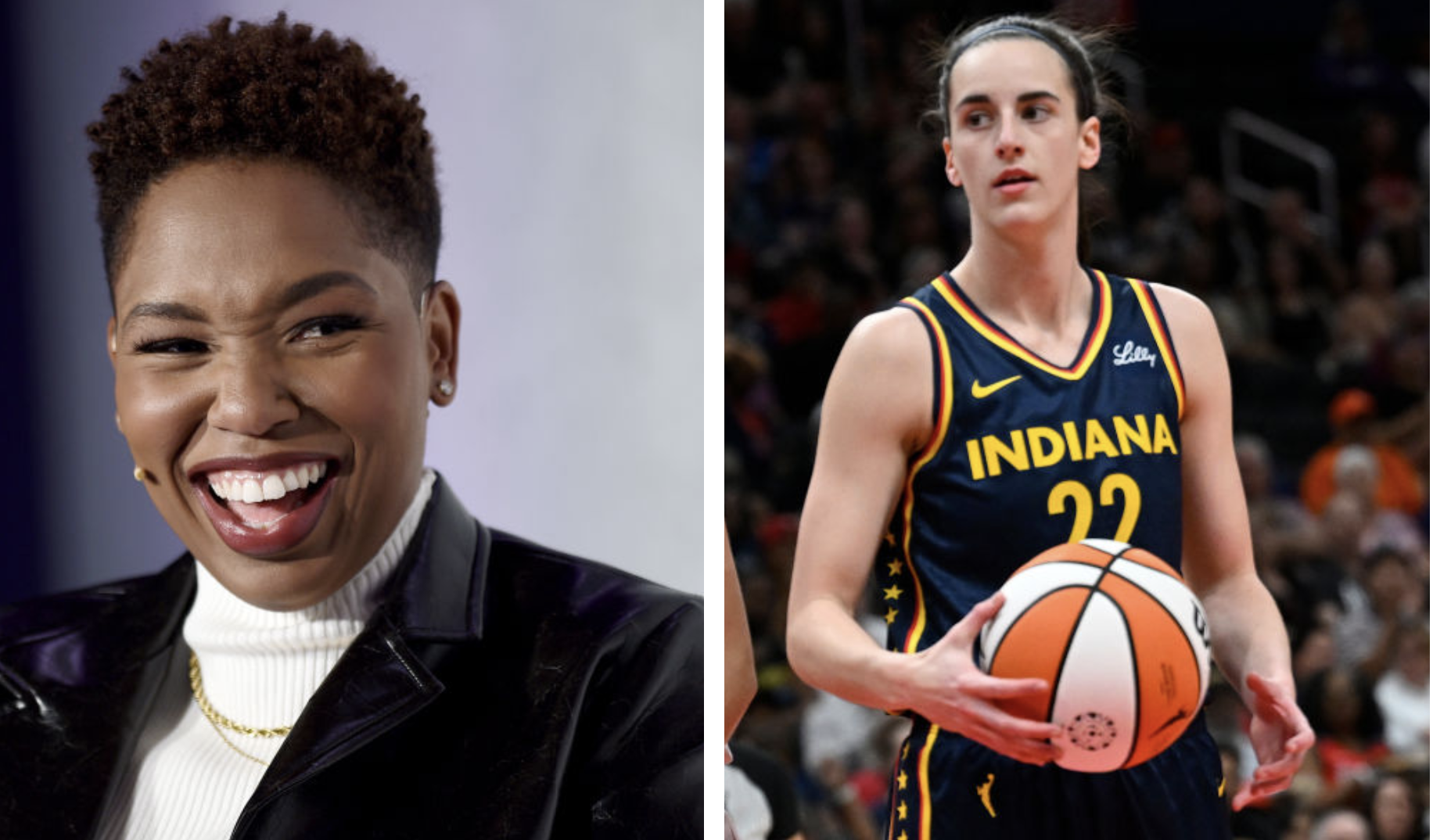In the world of sports commentary, opinions often fly, but when personal attacks or controversial statements are made, they can ignite a firestorm of backlash. This week, sports analyst and former basketball player Monica McNutt found herself at the center of a heated debate after her comments about star basketball player Caitlin Clark, which quickly escalated into a race-related tirade. What began as a critique of Clark’s performance on the court rapidly turned into a controversial conversation that involved a sensitive subject: race. McNutt’s remarks, particularly her invocation of “kids” in relation to Clark’s success, have left many questioning the boundaries of commentary and the responsibilities that come with it.
Monica McNutt, known for her sharp analysis and candid commentary, has made a name for herself in sports media. However, her recent comments about Caitlin Clark, a standout player for the University of Iowa, set the basketball world abuzz for all the wrong reasons. McNutt, during an appearance on a sports network, began by critiquing Clark’s style of play, but then veered into territory that many felt was both inappropriate and off-base.
“I mean, let’s be honest here. Caitlin Clark’s success is being amplified in a way that’s not really seen with other players,” McNutt said. “It’s almost as if some people forget the context of her success and how much of it is tied to her race and the way the media loves to elevate certain types of players.”

What followed was a tirade that saw McNutt insinuating that Caitlin Clark’s achievements were being propelled by a narrative that played into racial dynamics, suggesting that the attention Clark was receiving was due to the racial dynamics at play in collegiate sports.
However, things took a more unexpected turn when McNutt went on to reference “kids” in her comments.
“I just think, in the bigger picture, we need to stop pretending this is all about basketball. You see kids looking up to players like Clark, and they’re being taught to glorify someone based on these narratives that don’t reflect real-life struggles,” she said, referring to younger generations of athletes who might idolize Clark.
Almost immediately, McNutt’s comments set off a wave of criticism from fans, fellow sports analysts, and even athletes. Many took issue with the fact that McNutt, who was once a respected player herself, had invoked “kids” to make her point about race. Critics pointed out that it was unfair to draw children into a discussion that should have remained focused on the player’s talent and performance on the court.
“I’ve been watching Caitlin Clark since her high school days, and it’s clear she’s a once-in-a-generation talent,” said one Twitter user. “For McNutt to bring race into it and then drag kids into the conversation just seems so out of touch. It’s about skill, plain and simple.”

Others expressed frustration with McNutt’s apparent implication that Clark’s race had somehow made her a media darling, suggesting that this line of thinking undermined the athlete’s hard work and dedication.
“The racial angle is just another distraction from the fact that Caitlin Clark has worked her ass off to get where she is,” said another sports analyst. “It’s disappointing that someone like McNutt, who knows what it takes to make it in this industry, would minimize that and try to make it about something else.”
The backlash did not go unnoticed by McNutt, who quickly took to social media to clarify her comments and express regret for her words.
“I made a mistake in how I framed my critique,” McNutt posted on Twitter. “I want to be clear, Caitlin Clark is a phenomenal player who deserves all the attention she’s getting. My comments were poorly worded, and I deeply regret bringing race and kids into it. I’ll do better moving forward.”
However, even her apology could not quell the storm. Many felt that her attempt at damage control didn’t adequately address the harm caused by her initial comments, especially given the nature of her role as a mentor and role model for young athletes herself.
“I think McNutt needs to step back and really reconsider how she approaches these discussions,” said another commentator. “She has an influence on a lot of people, including kids. And dragging them into a race-based narrative that doesn’t fit her argument just isn’t right.”
Monica McNutt’s comments serve as a cautionary tale about the fine line between critique and controversy in sports commentary. While it’s true that athletes like Caitlin Clark often face disproportionate scrutiny and praise based on their race, these issues must be handled with care and respect. Bringing up such sensitive topics in an inflammatory manner can harm both the subject of the commentary and the audience, especially when children are mentioned in an attempt to strengthen the argument.
It’s a reminder that as sports analysts, there is a responsibility to engage in these conversations thoughtfully and constructively. McNutt’s remarks may have been an attempt to challenge the conventional narrative around Clark’s rise, but the execution of her argument left much to be desired.
As McNutt moves forward from this controversy, one thing is clear: discussions about race, especially in the context of sports, require nuance and sensitivity. And when it comes to children, who often model their behavior after athletes, it’s important to consider the potential long-term effects of the messages we send.
In the end, it’s about respecting the players and their hard work, regardless of their background, and ensuring that future generations understand the value of merit, dedication, and resilience over all else.
